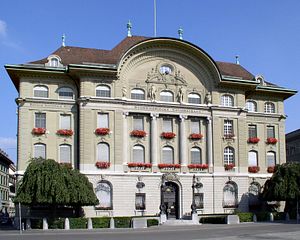In a major coup in India’s efforts to recover untaxed wealth, Switzerland recently promised to share the details of Indian nationals “holding black money” in Swiss bank accounts. The offer to share information came after India’s Finance Minister, Arun Jaitley, wrote to the Swiss authorities requesting their cooperation.
Given the highly secretive methods used to make international financial transfers reliable estimates are difficult, but the most widely reported figures place the amount of untaxed wealth stowed away by Indians in overseas havens at $500 billion.
India’s newly elected right-wing government, voted into power with a landmark majority on May 16, has taken on the country’s long fight against corruption with great zeal. Among the government’s first announcements was the establishment of a Special Investigation Team (SIT) to locate so-called “black money,” a move that was widely celebrated.
In the run up to this year’s elections Narendra Modi, now India’s prime minister, repeatedly referred to the polls as a referendum on the previous government’s shocking record on corruption. The determination with which India’s new administration has pursued illicit funds has further gilded Modi’s image as an honest and incorruptible leader.
Indeed, repatriating un-taxed money is a hot-ticket pursuit. For many in India, the issue represents the worst sort of corruption: unscrupulous elites squirreling away public funds beyond the reach of the state. Tax evasion also raises questions of moral obligations: why should the poor, those that can least afford it, pay taxes when the rich refuse to do so?
Switzerland’s active cooperation with India on the matter was welcomed by Arijit Pasayat, the SIT’s vice-chairman, as a “breakthrough development,” and the list is set to be delivered on August 1.
Switzerland has long faced both criticism and pressure for not disclosing information to countries that seek it for domestic tax matters. The decision to share details with India marks a concerted attempt by Swiss authorities to change their banking practices to combat tax evasion. Data gathering is now possible after a protracted period of legislative reform – culminating with the introduction of the revised Tax Administrative Assistance Act – that empowers the Swiss government to overrule the secrecy provisions employed by the country’s banks to safeguard their clients. The reforms bring Switzerland’s banking laws in line with global standards of transparency.
The disclosures to be provided by the Swiss government will include information on all the “individuals and entities” that are suspected to have parked untaxed money in Swiss banks through “structures like trusts, domiciliary companies and other legal entities based out of countries other than India,” a Swiss official said.
Not all of the funds in these accounts will be un-taxed but the latest data released by the Swiss National Bank (SNB), Switzerland’s central banking authority, revealed that the money funneled into Switzerland by Indian nationals last year totaled $2.3 billion, a 43 percent increase from the amount in 2012.
The SIT established by Modi, headed by Manharlal Shah a former Supreme Court justice, immediately called on India’s Finance Ministry to collect information from tax havens on alleged offender. India’s government hopes that Switzerland’s disclosures will help in the recovery of any unpaid tax dues and in the prosecution of tax evaders.

































